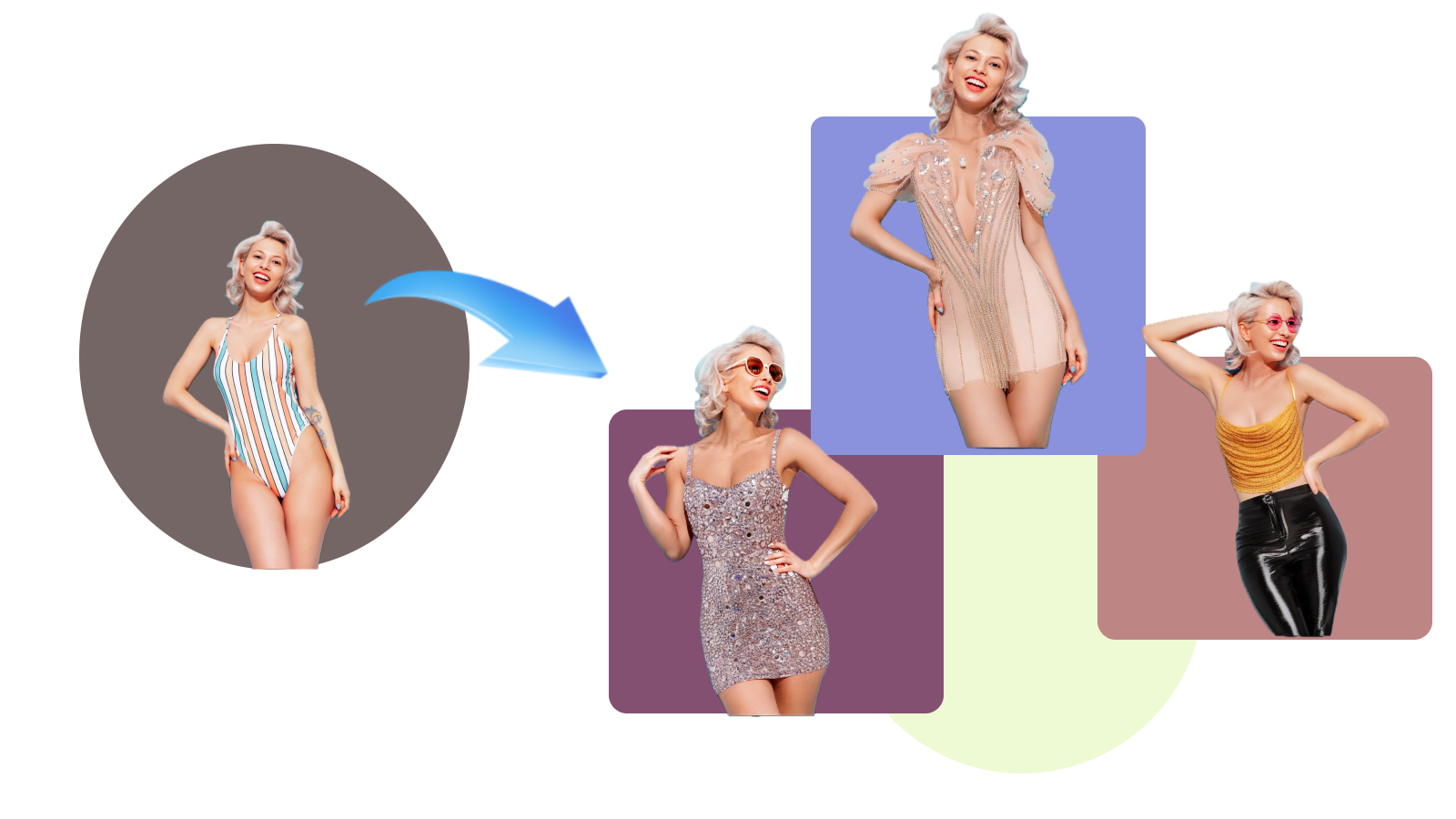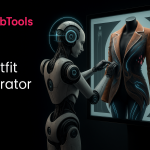In fashion and e-commerce, the simple question “What should I wear?” is increasingly being answered with data and algorithms.
Instead of scrolling endless product listings or shooting hundreds of photos with different outfits, a modern AI outfit generator can give you visual answers in seconds.
In this article, we’ll walk through how an AI outfit generator like AILabTools’ Outfit Generator works, what makes it different, and how brands, creators, and developers can use this custom outfit generator AI to build their own intelligent virtual fitting rooms.
What Is an AI Outfit Generator?
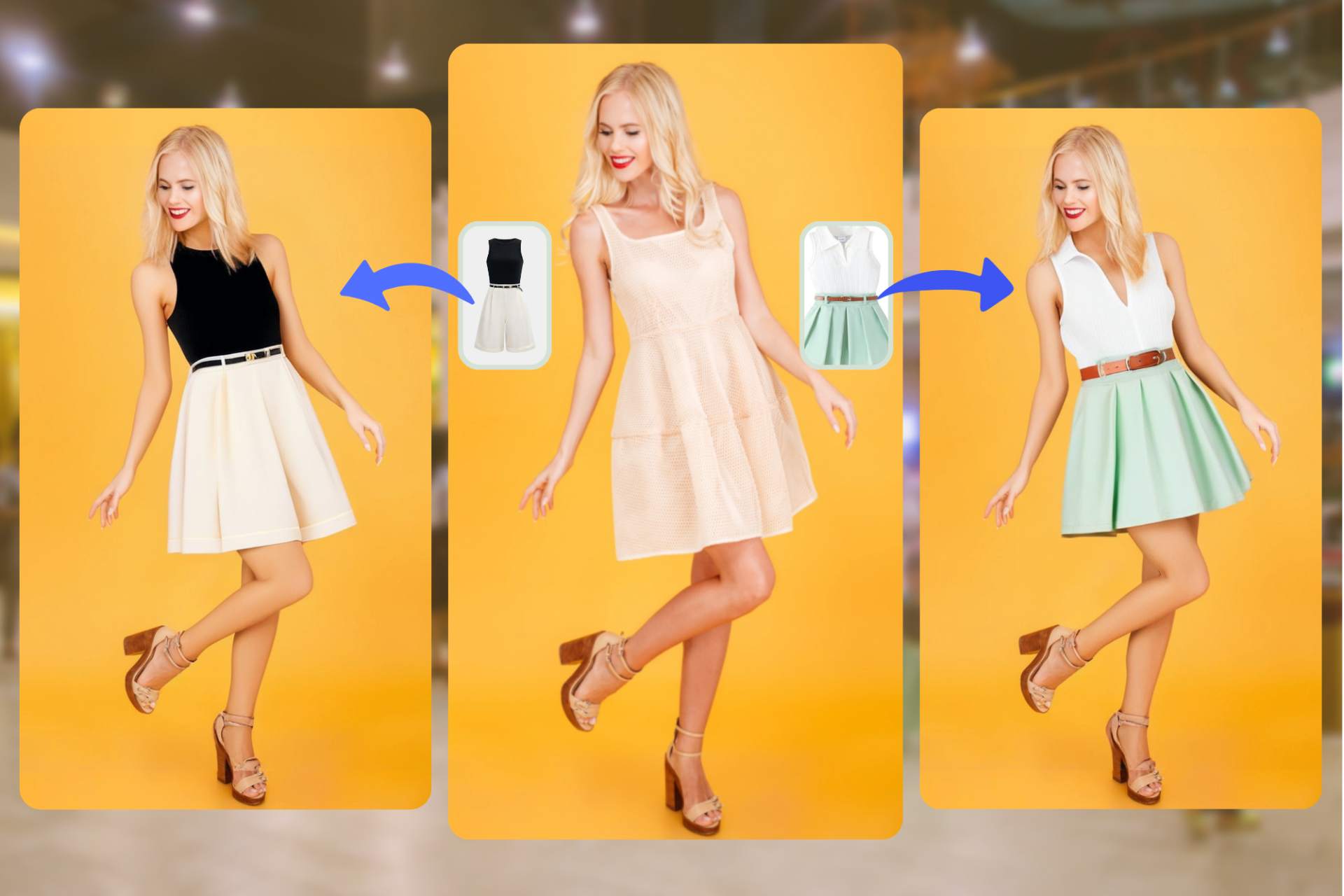
An AI outfit generator is an AI-powered tool that takes in a person’s photo and clothing images, then automatically creates realistic virtual try-on results and outfit visuals.
On AILabTools, the Outfit Generator allows users to:
- Upload a clear portrait image
- Upload one or more clothing images (tops, bottoms, full outfits)
- Let AI perform virtual try-ons and clothing changes
- Download high-quality results for social media, marketing or product display
In other words, it’s a browser-based AI outfit generator and clothes changer that acts as both a virtual stylist and a visual content engine.
Why You Need a Custom Outfit Generator AI
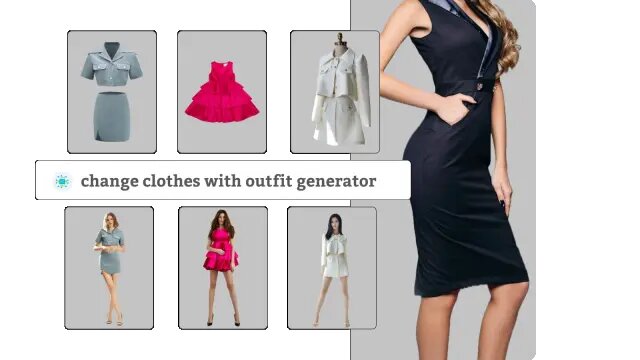
Building your own custom outfit generator AI solves several real problems for both consumers and businesses:
1. Higher Confidence in Online Shopping
Shoppers see outfits on their own body or face, not just on a generic model.
This reduces uncertainty, improves sizing and style decisions, and helps lower return rates.
2. Lower Visual Content Production Cost
Instead of planning a whole photo shoot every time you release new collections, you can:
- Generate model images and outfit visuals directly from clothing photos
- Reuse a small set of portrait images across many different garments
- Produce more content with less budget and time
3. Faster Creative and Styling Experiments
Marketing and design teams can:
- Test concepts, colorways, and outfit combinations visually
- Validate campaign ideas before committing to expensive production
- Build multiple variations of landing pages and ads more efficiently
4. Differentiated Fashion-Tech Experience
Developers and SaaS platforms can embed outfit generator capabilities into:
- Mobile apps
- E-commerce websites
- Internal tools and dashboards
Using APIs, you can build personalized styling experiences, virtual fitting rooms, and wardrobe planners powered by AI outfit generator technology.
Instead of being “just a filter”, a serious AI outfit generator becomes part of the shopping journey, design workflow, and overall product experience.
How the AILabTools AI Outfit Generator Works
On AILabTools, using the Outfit Generator is intentionally simple.
The UI stays minimal while the AI does the heavy lifting behind the scenes.
Step 1 – Upload Photos
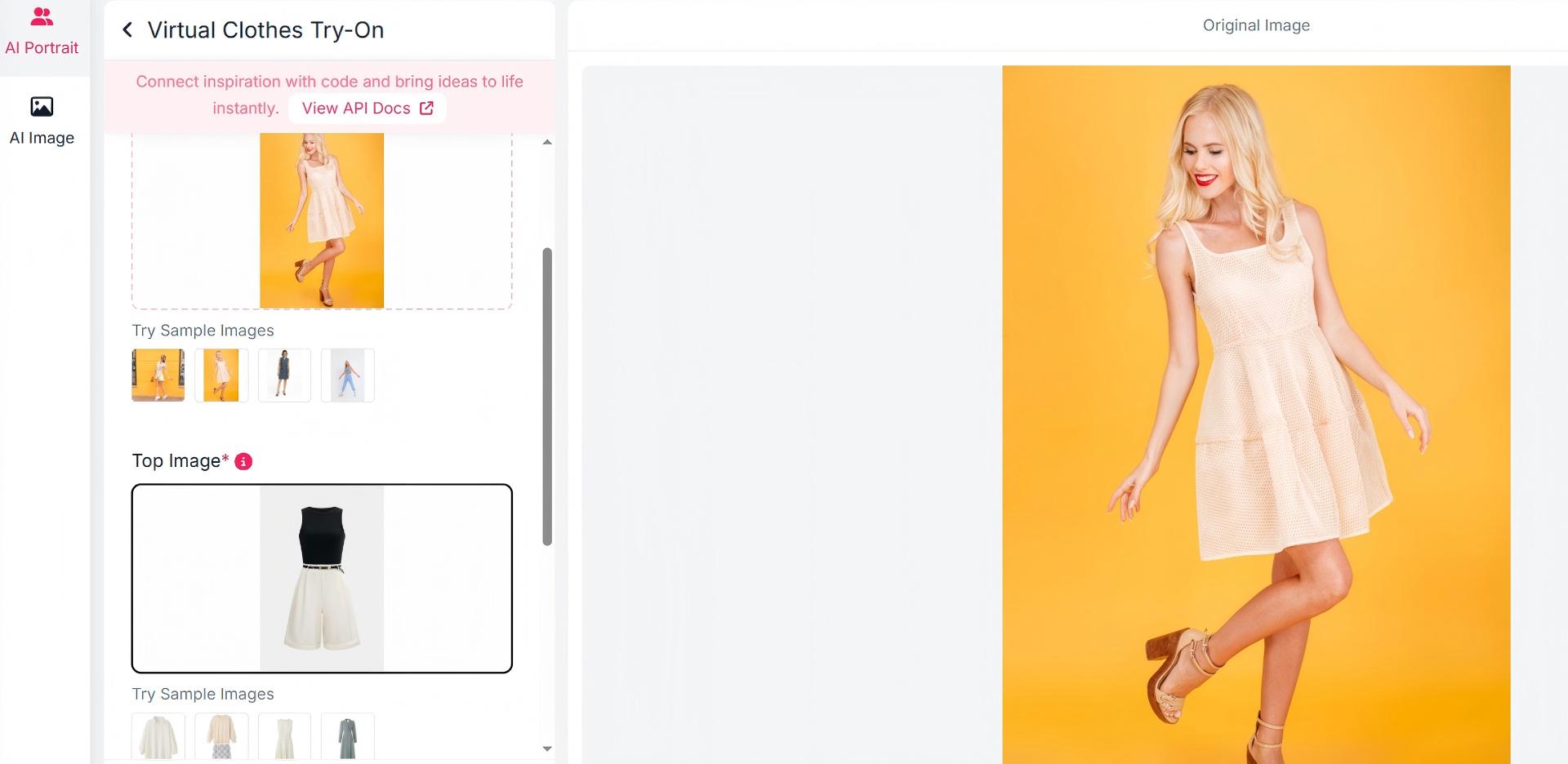
You start by uploading:
- A portrait image – a clear photo where the face and upper body are visible
- One or more clothing images – tops, bottoms, or complete outfits you want to try on or combine
The interface is web-based: drag-and-drop or click-and-upload, with sample images available for quick testing.
Step 2 – Let the AI Outfit Generator Process the Images
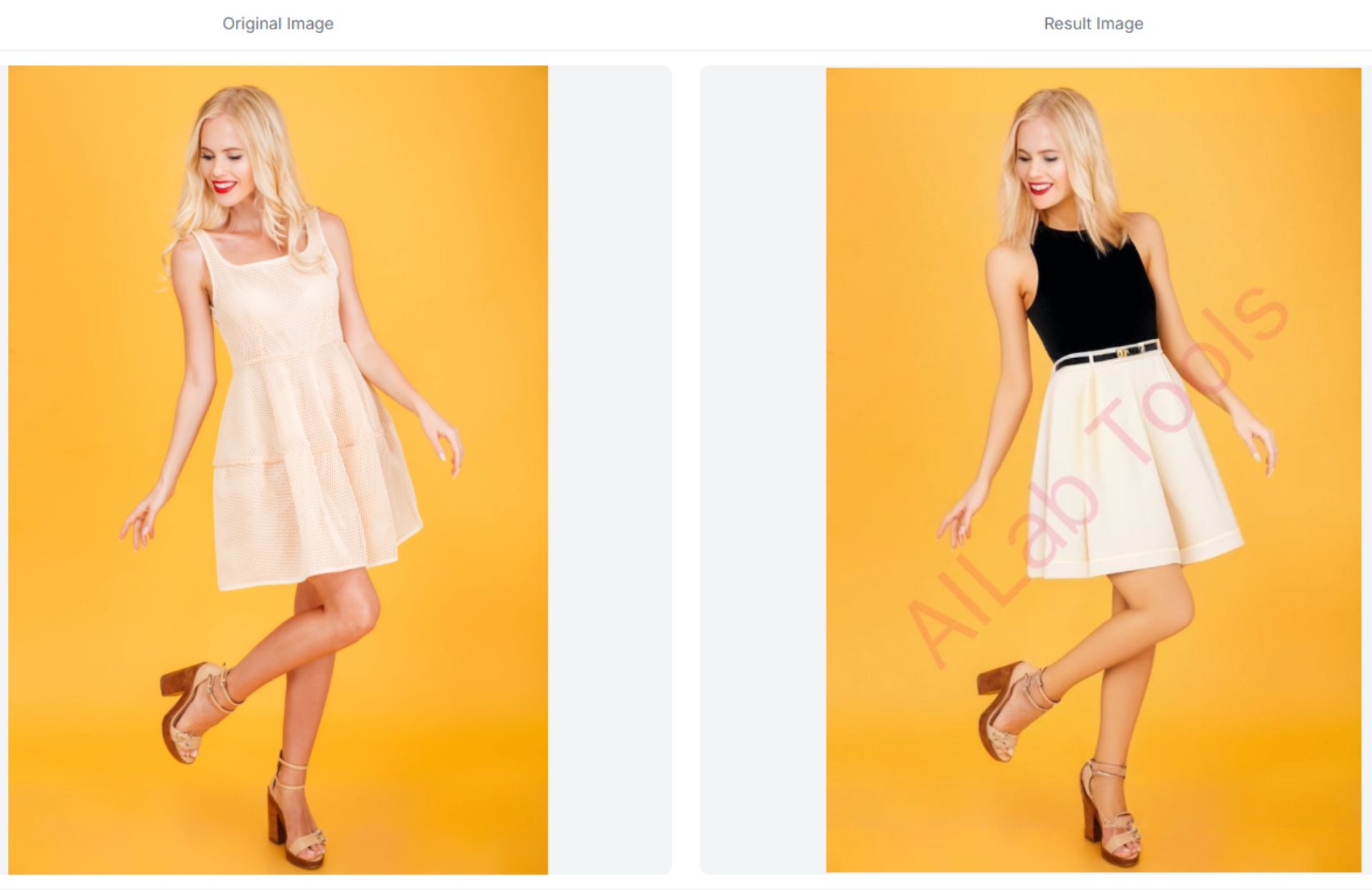
Once you click generate, the AI outfit generator will:
- Detect the person in the portrait
- Recognize and segment clothing from the garment images
- Align clothing shape, pose, and perspective to the person
- Blend textures, colors, and lighting to create realistic virtual try-on results
Processing usually takes from a few seconds to a couple of minutes, depending on image size and server load.
Step 3 – Review, Compare, and Download
After processing, you can:
- Preview virtual try-on images
- Compare different outfits or style variations
- Download high-quality results for social media, product pages or internal review
From the end user’s perspective, this is a seamless outfit generator flow:
upload → generate → review → download.
Core Capabilities of the AILabTools AI Outfit Generator
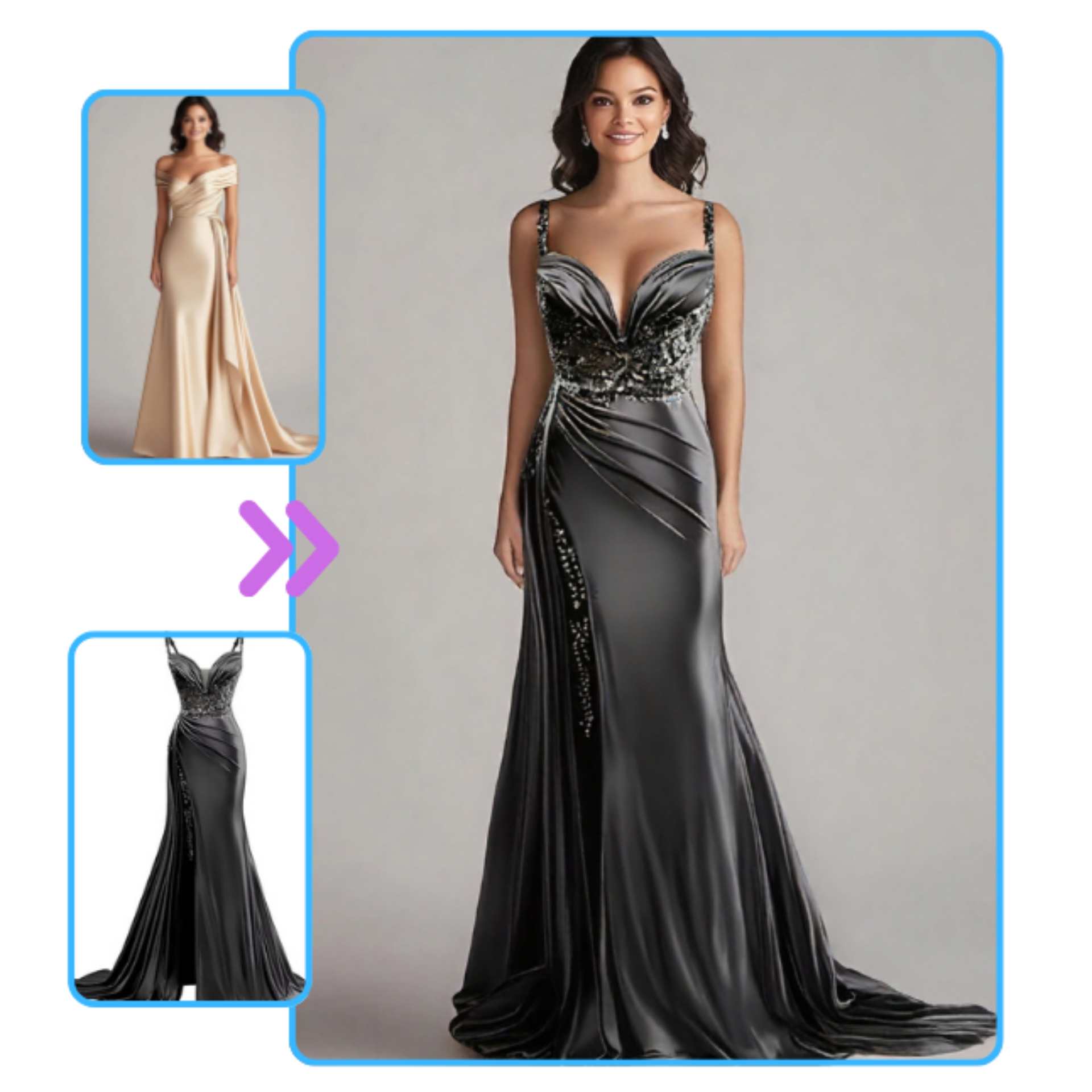
While the interface is simple, the feature set is designed to serve multiple audiences: shoppers, designers, marketers, and developers.
1. AI Outfit Generator as a Virtual Stylist
The tool acts as a virtual stylist that helps users visualize different looks for different occasions:
- Every day, casual outfits
- Office and formal wear
- Event and party styles
- Seasonal looks and themed outfits
Upload your portrait and clothing photos, and the AI outfit generator instantly shows how the outfit looks on you—no physical fitting room required.
2. Clothes Changer for Advanced Image Editing
Beyond basic try-ons, the tool works as a flexible clothes changer:
- Replace clothing on the same portrait while keeping the person and pose
- Test different colors or prints for the same garment design
- Refresh social media imagery and campaign visuals without reshooting photos
This makes the AI outfit generator valuable not just for shopping, but also for brand storytelling and visual identity work.
3. Creating Original Clothing Model Images
Designers and fashion brands can use the Outfit Generator to create original model images:
- Upload a neutral model portrait
- Upload clothing designs (flat lays, catalog shots, or sample photos)
- Generate customized apparel model images for marketing, catalogs, or lookbooks
Instead of relying entirely on stock photos or frequent studio shoots, teams can iterate visually with AI and then finalize the best concepts with traditional photography if needed.
4. Outfit Generator API for Developers
For teams building their own fashion-tech products, the Outfit Generator API exposes the same capabilities used in the web tool:
- Virtual try-on with portrait + clothing images
- Personalized outfit generation and wardrobe suggestions
- Integration into e-commerce sites, mobile apps, or internal tools
AILabTools offers dozens of high-performance APIs with strong uptime and performance guarantees, making it suitable for production environments.
For developers, this effectively turns the service into a programmable custom outfit generator AI they can fully control and integrate into their own UX and business logic.
Real-World Use Cases for an AI Outfit Generator
1. Consumers and Fashion Enthusiasts
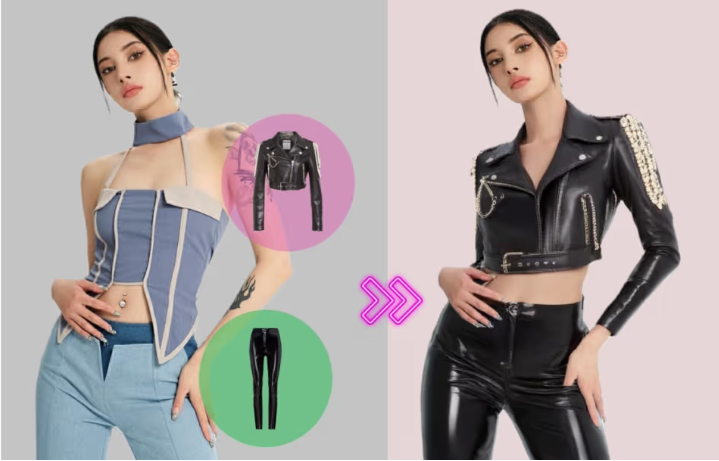
Everyday users can use the tool as a visual decision-making helper:
- Plan outfits for work, dates, events, and travel
- Experiment with new styles before purchasing anything
- Create cohesive and on-brand looks for social media and personal branding
In this context, the AI outfit generator is a mix of creative playground and practical style assistant.
2. E-Commerce and Online Retailers
For online clothing stores, adding a custom outfit generator isn’t just a nice-to-have — it can create real business value:
- Shoppers can upload their own photos and get a clear idea of how the clothes might look on them.
- Visitors spend more time on your product pages and engage more with the items.
- The gap between what customers expect and what they receive is smaller, which helps reduce returns.
- You can showcase a broader range of body types and styles in your visuals without constantly organizing new model photoshoots.
This turns a standard product detail page into an interactive experience.
3. Designers, Brands, and Marketing Teams
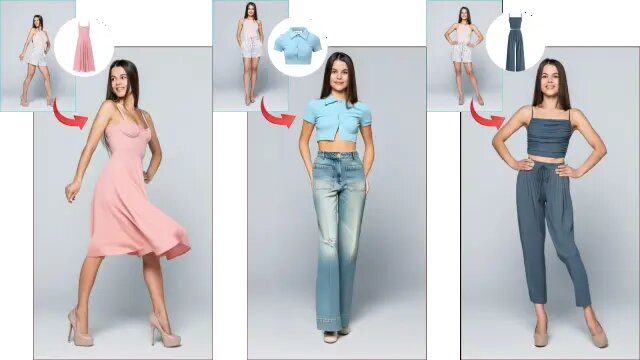
Designers and marketers can:
- Quickly see how a design appears on different models
- Generate image variations for campaigns, landing pages, and ads
- Build storyboards and concept visuals using the outfit generator before committing to a full production shoot
You get more iterations, more data, and better creative decisions with the same or lower budget.
4. Developers and Fashion-Tech Platforms
Using the Outfit Generator API, developers can:
- Build wardrobe planning and “what to wear” apps
- Create AI stylists or chat-based fashion assistants
- Enhance existing retail apps with virtual try-on modules
- Combine AI outfit generator outputs with recommendation systems for end-to-end styling experiences
Here, the tool becomes a core capability of the product rather than just a standalone feature.
Under the Hood: How an AI Outfit Generator Creates Realistic Looks
At a high level, most modern AI outfit generators follow a similar conceptual pipeline:
1. Person and Garment Detection
The model detects the body, pose, and keypoints from the portrait and segments the garment from the clothing image.
2. Geometric Alignment
Clothing is warped and aligned to fit the person’s pose and proportions while preserving key features such as collars, sleeves, and hems.
3. Texture and Lighting Adaptation
The AI adjusts textures, shading, and highlights to match the lighting and style of the original photo, making the fabric look believable.
4. Compositing and Refinement
The generated outfit is composited with the original portrait, preserving the person’s identity and facial details while smoothing edges and fixing visual artifacts.
AILabTools wraps this complexity behind an easy-to-use outfit generator interface and a clean API, so users and developers can focus on use cases rather than low-level implementation.
Privacy, Security, and Performance
Working with portraits and personal photos makes privacy an absolute priority.
A robust AI outfit generator needs to address this clearly.
Typical guarantees include:
- Time-limited storage
Uploaded and generated images are stored only for processing and are automatically deleted after a short window (e.g., within 24 hours).
- High system stability
Platform uptime above 99% to support live e-commerce and SaaS integrations.
- Scalable infrastructure
An API architecture that can handle high concurrency and global traffic patterns.
- Professional support
Dedicated technical support and a ticketing system for teams that need assistance with integration and scaling.
These points make the solution suitable not only for casual users, but also for serious B2B use where data protection and uptime are non-negotiable.
How to Get Started with an AI Outfit Generator
If you’d like to try or integrate an AI Outfit Generator, you can first test the web-based tool on the AILabTools website, and then consider integrating the API based on your specific business needs.
Final Thoughts
The combination of an AI outfit generator, virtual try-on capabilities, and powerful APIs is no longer futuristic—it’s something you can deploy on your website or app today.
By using a custom outfit generator AI like AILabTools’ Outfit Generator, you can:
- Give users a more innovative, more personal way to explore style
- Cut the cost and time of fashion visual production
- Build a realistic, intelligent virtual fitting room experience
If your brand or product touches fashion, e-commerce, or digital content in any way, adding an outfit generator to your stack is quickly becoming less of a “nice-to-have” and more of a real competitive advantage.
